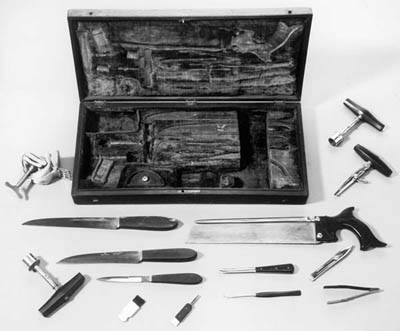
Kwame - On the ship
Days have passed and I am grateful to this man - I am in the sunshine. I help him clean and heal the people still in the hole. They have dirty sores under their metal rings, wounds from whipping and many cannot eat or drink. They get so thin. I think many will die before we see land - even some of the white men.
Surgeon's tools

A late 18th/early 19th century case holding a ship's surgeon's tools (© Science Museum, London).
Die
The number of deaths on board ship varied depending on the year and the conditions on the ship. It is thought that on average one in ten Africans died on each crossing, with the figures rising to three in ten on stormy journeys. They mainly died from diseases like dysentery and small pox, but it was claimed that many simply died from misery.
White Men
The health of the crew was an issue in the debate to abolish the slave trade. Seamen died on board ship as well as captives, indeed some were slaves. They ate the same poor food as the Africans in the hold, spent much more time on board and were sometimes treated worse. It is estimated that one in five crewmembers died with each sailing.


